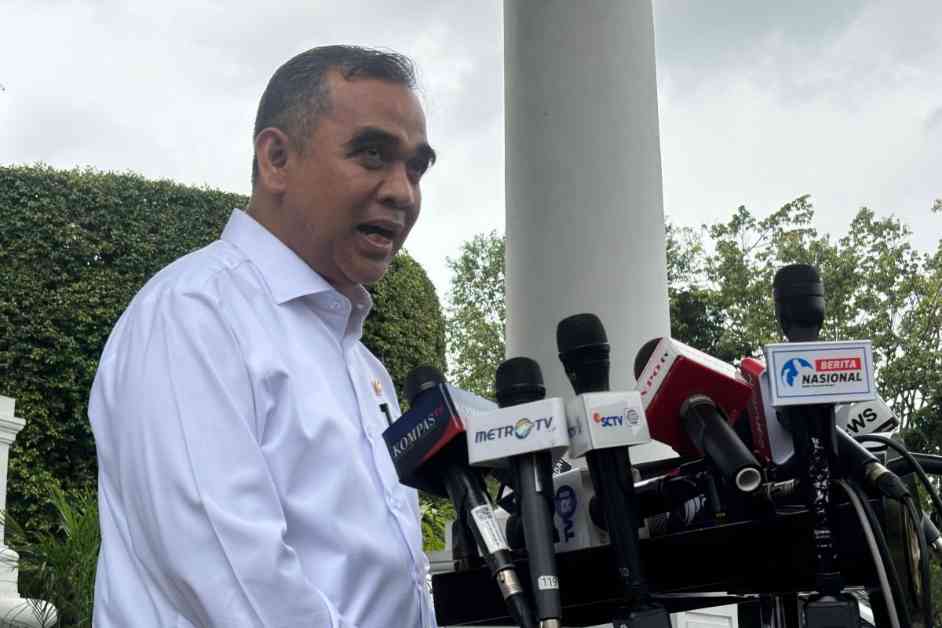Chairperson of the People’s Consultative Assembly (MPR), Ahmad Muzani, recently shed light on the impact of the budget efficiency policy on ministries and institutions, including the MPR. This policy, initiated by President Prabowo Subianto through Presidential Instruction Number 1 of 2025, aims to enhance spending efficiency in the implementation of the 2025 State Budget and Regional Budget. During a press statement at the Presidential Palace in Jakarta, Muzani highlighted the repercussions of this policy on official travel and socialization allowances within the MPR.
Muzani acknowledged that the budget efficiency measures have affected various sectors, with office travel being one of the areas significantly impacted. While specific details regarding the budget cuts at MPR were not disclosed, Muzani mentioned that the House of Representatives’ budget committee had provided insights into the implications of the policy. The exact figures related to budget reductions and adjustments in socialization programs are still under calculation, indicating a transitional period for budget reallocation within the MPR.
The rationale behind the budget efficiency policy stems from the need to allocate resources more effectively, especially for national priority programs. Muzani voiced his support for the policy, emphasizing the importance of redirecting funds from less productive areas to programs that demand greater financial focus. By concentrating budgets on essential programs, Muzani believes that the government can optimize public services and enhance overall program efficiency.
President’s Directive on Budget Efficiency
In a bid to maintain fiscal stability and elevate public service standards, President Prabowo Subianto issued a Presidential Instruction on January 22, 2025, calling for a budget efficiency of Rp306.69 trillion in the 2025 State Budget and Regional Budget. This directive outlined specific measures to curtail non-priority spending and promote a more streamlined budget allocation process. Among the key directives were restrictions on ceremonial spending, comparative studies, and official travel, with a notable reduction in official travel allowances by up to 50 percent for governors, mayors, and district heads.
Moreover, the budget efficiency policy targeted honorarium spending and activities lacking measurable outcomes, underscoring the need for a results-oriented approach to budget utilization. The President’s instructions underscored the importance of aligning budget allocations with improved public service delivery, emphasizing performance-based criteria over traditional budget patterns. By shifting the focus towards enhancing public services, ministries and institutions are expected to drive operational excellence and maximize the impact of government programs on the community.
Embracing Efficiency for National Progress
As the government navigates the complex landscape of budget reallocation and efficiency, the overarching goal remains to foster national progress and address pressing societal needs. While the adjustment period may pose challenges for some institutions, the long-term benefits of a more streamlined budgeting process are poised to yield substantial returns in terms of public service quality and program effectiveness. By adopting a strategic approach to budget management, Indonesia aims to enhance governance practices, promote transparency, and ensure that public resources are allocated judiciously for the benefit of all citizens.
In conclusion, the budget efficiency policy introduced by President Prabowo Subianto marks a pivotal moment in Indonesia’s fiscal landscape, signaling a shift towards a more efficient and results-driven budgeting framework. By embracing this policy, ministries, institutions, and government officials can contribute to the realization of national priorities, driving sustainable development and equitable growth across the archipelago. As the nation charts a course towards greater efficiency and accountability in budget management, the collective efforts of all stakeholders are essential to building a brighter future for Indonesia and its people.






















